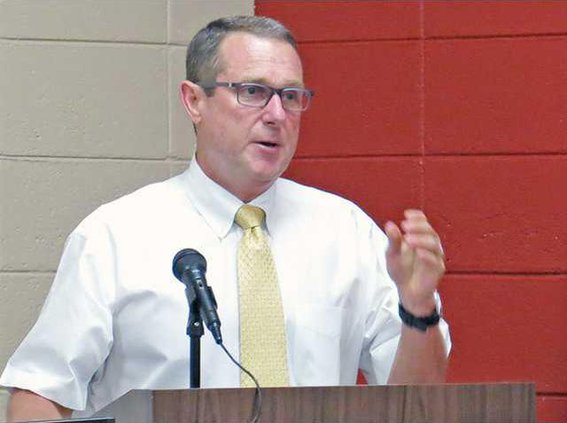I read with interest a recent column submitted to the newspaper concerning SPLOST and ad valorem taxes. While I fully support one’s right to free speech and voting, I am troubled by incompleteness and/or inaccuracies in material discussed. While the kinder and gentler side of me attributes this to “just a small misunderstanding of the true facts,” I feel it’s necessary to accurately inform readers on these matters.
In 1985, the Georgia General Assembly, with the disappearance of federal revenue sharing, recognized the need to provide governments with a tool by which to construct key infrastructure projects. Subsequently, they passed House Bill 281 authorizing the levy of a 1 percent sales tax to finance capital projects. This SPLOST tax, which is authorized by the voters, can only be used for specific projects that must appear on the ballot. These projects, once approved, cannot be changed or deleted by the body authorizing the call for the referendum. In Georgia, 151 of the state’s 159 counties currently use this method — rather than property taxes — to acquire or construct key capital assets. Not to be confused with SPLOST, LOST is the Local Option Sales Tax. Originally created in 1975 and modified by the General Assembly in 1979, LOST is a one-cent sales tax shared with cities. The county portion of this revenue is dedicated to rolling back taxes only in the unincorporated areas of the county. LOST proceeds — not SPLOST proceeds — must be used in their second year to calculate a reduction in taxes. The previously published column erroneously indicated that SPLOST was used for this purpose. LOST proceeds are distributed directly from the state to the county and qualifying cities and may be used for any general-fund purpose.
The recent column also stated that property taxes will be raised regardless of the outcome of the SPLOST vote and relies on the millage rate established following the 2008 election to bolster this claim. However, actual rate levy certificates and actions of the commission reveal that the millage rate for both unincorporated and incorporated Hinesville areas actually were lowered in 2008 from 12.684 to 11.98 and 11.646 to 11.4, respectively. The notice of increase cited in his article deals with inflationary growth in the digest, not the final millage rate to be adopted by the government entity.
Another note of importance: the Auburn study mentioned in the letter actually was a Public Policy Research Series by the Carl Vinson Institute of the University of Georgia. An Auburn professor, Changhoon Jung, submitted an opinion paper as part of that series. The submittal by Professor Jung analyzes several aspects of the SPLOST tax, some of which ironically were omitted in the column. Among these are: 1.) Georgia is one of the fastest-growing states in the country with growth that has resulted in a need for roads, highways, bridges, courthouses, jails, libraries and other capital facilities. 2.) SPLOST shifts the tax burden from financing local capital projects from property owners to consumers. 3.) SPLOST allows for part of the capital-finance burden to be shared by non-residents.
Finally, one very important excerpt from the opening of Mr. Jung’s submittal was, “An adequate investment in capital projects and maintenance of capital facilities is vital for economic development and quality of life in a community.”
Businesses and individuals consider many things when deciding whether to locate to a new community. One of these is how infrastructure is improved and maintained. Since 1989, the citizens of Liberty County have decided that these improvements and upgrades should be funded through the Special Purpose Local Option Sales Tax. The vote on Nov. 4 is simply an economic decision to be determined by the community. Will approximately 10,000 individual property owners pay for needed capital improvements, or will they allow the total population — over 65,000 visitors — to assist them in this endeavor?
In closing, let me again say that I greatly respect and appreciate a person’s ability to share their opinion with others. I just hope that, in the future, those opinions will include an accurate account of the matter being discussed so as to not confuse the public on such an important issue.
Will 10,000 landowner or 65,000 visitors pay for projects?
Election commentary


Sign up for our e-newsletters